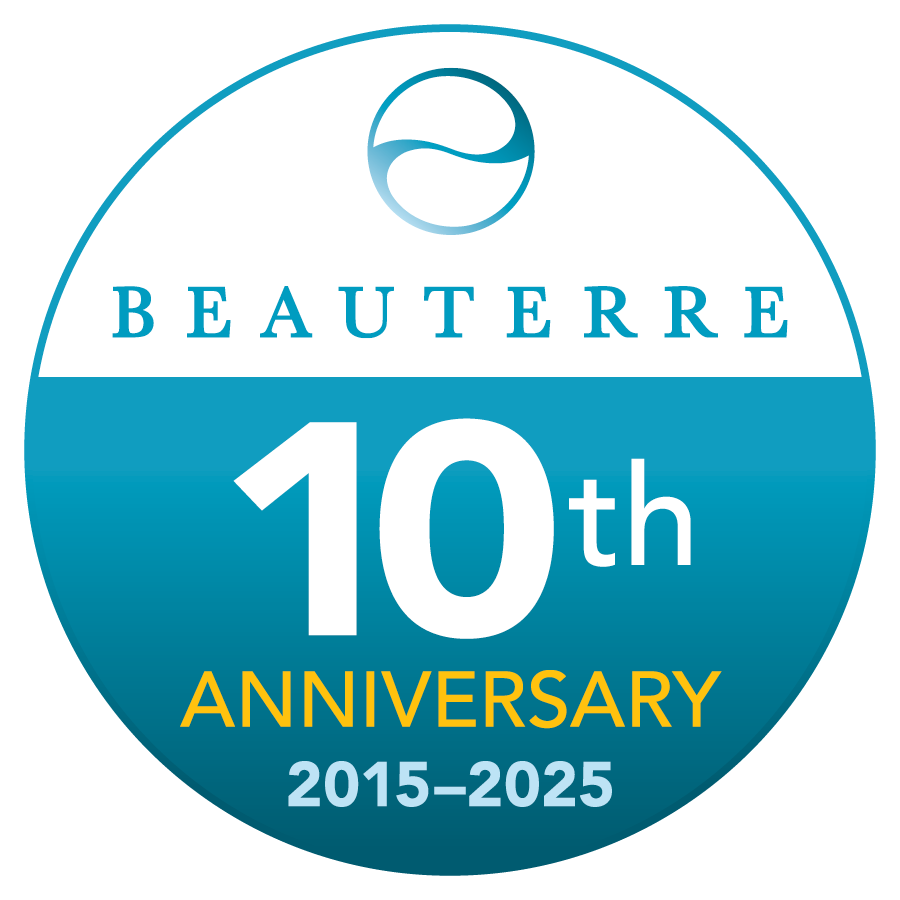Choosing residential treatment is a big step, and you deserve a place that feels safe and supportive. At Beauterre in Owatonna, Minnesota, our retreat-like setting helps you step away from daily stress so you can focus fully on recovery.
We offer integrated care for addiction and co-occurring mental health conditions, delivered by a team that honors your story and your goals.
Looking for help? Contact us or call today.
612-454-2444Integrated Dual Diagnosis Treatment for Mental Health and Substance Use Disorders
Many people who seek addiction treatment are also living with mental health conditions such as depression, anxiety, PTSD, panic disorder, or bipolar disorder. These conditions influence one another, which is why integrated care is considered the most effective approach for co-occurring disorders.
At Beauterre, integrated care means your mental health and substance use needs are addressed together, in a coordinated and supportive environment. Residential care strengthens this process. Living on campus gives you time and space to step away from daily pressures, engage in consistent therapeutic routines, and receive support whenever you need it. This can be especially valuable for individuals with co-occurring disorders or long-standing patterns of substance use.
Integrated residential treatment provides:
- A safe, structured setting with 24/7 support
- Daily individual counseling and group therapy
- Trauma-informed, whole-person clinical care
- Coordinated medical and psychiatric services
- Peer connection and community support
- Family involvement and education
- Planning for aftercare and continuing care
By addressing addiction and mental health together, you receive care that supports your emotional, physical, and psychological well-being and helps you move toward a more grounded, stable, and hopeful life. Call 612-454-2444 or contact us online to learn how integrated residential care can support your healing.
A Supportive Environment to Focus On Healing
Your time at Beauterre begins with a warm welcome and a comprehensive intake assessment. Our clinical team takes time to understand your personal story, the challenges you have been facing, and your goals for your future. This guides the creation of a customized treatment plan that supports your healing from the very beginning.
As you settle into the program, your daily schedule provides a balance of clinical care, therapeutic groups, education, and restorative activities. The structure is designed to support your mind, body, and spirit, offering consistency while giving you space to learn, practice new skills, and reconnect with yourself.
During your stay, you may participate in:
- Individual therapy with licensed mental health clinicians
- Group therapy focused on skills, insight, and connection
- DBT and CBT-based skills sessions
- Motivational enhancement therapy
- Trauma-informed care and psychoeducation
- Wellness and recreation activities
Recreational and holistic programming is woven throughout your stay, giving you opportunities to reduce stress, explore new coping tools, and build healthy routines that support your long-term recovery.
Evidence-Based Therapies and Clinical Services
Beauterre incorporates a wide range of proven therapeutic approaches to support lasting recovery:
Co-Occurring Disorders Recovery Group
A safe, supportive space to explore how addiction and mental health intersect while building skills, insight, and connection.
Trauma-Informed Care
Understand how past experiences influence present patterns and learn pathways toward healing without pressure or judgment.
Medication-Assisted Treatment (MAT)
FDA-approved medications, when clinically appropriate, help reduce cravings, support stability, and decrease relapse risk, always with medical oversight.
Cognitive Behavioral Therapy (CBT)
Identify unhelpful thoughts and behaviors and learn healthier, more effective alternatives.
Dialectical Behavior Therapy Skills (DBT Skills)
Practice emotional regulation, mindfulness, distress tolerance, and interpersonal effectiveness.
Motivational Enhancement Therapy
Strengthen your internal motivation and clarify your personal reasons for change.
Individual Therapy
One-on-one time with licensed therapists to explore emotions, process experiences, and build coping strategies.
Family Education and Support
Learn communication tools, rebuild trust, and involve loved ones in the healing process when appropriate.
These evidence-based services work together to support mental, physical, and emotional wellness throughout your treatment experience.
Looking for help? Contact us or call today.
612-454-2444“Healing begins the moment you walk through our doors. Our compassionate team provides the highest level of care, supporting you with expertise and respect every step of the way.”
Tim Walsh, M.A., L.P.; DPA
Executive Director
Expert Multidisciplinary Team for Dual Diagnosis Recovery
Your care team at Beauterre includes highly trained professionals committed to supporting your recovery journey:
- Medical Director
- 24/7 Licensed Nursing Staff
- Psychiatric Nurse Practitioner
- Physician Assistant
- Licensed Alcohol and Drug Counselors
- Licensed Mental Health Therapists
- Peer Recovery Specialists
- Community Resource Coordinators
Each team member brings unique expertise to ensure you receive the highest level of care for both your mental health and physical health.Call 612-454-2444 or contact us online for a confidential conversation.
Amenities That Support Whole Person Healing
Healing is reinforced not only through therapy but also through the environment that surrounds you. Beauterre offers a scenic and private retreat setting that encourages reflection, movement, and a deeper connection to your recovery work. Every patient receives an individualized treatment plan that reflects personal goals and strengths, and our amenities are designed to support that holistic approach.
During your stay, you can stay active, grounded, and engaged through amenities such as:
- Fitness center
- Walking trails
- Basketball court
- Tennis court
- Pickleball court
- Golf practice tee
These spaces provide opportunities for healthy stress relief and time outdoors, which can enhance emotional well being and support your overall healing process.
Seamless Aftercare & Ongoing Support
Recovery does not end when treatment concludes. Completing treatment is a powerful milestone, and our team continues to support you as you move into the next phase of your recovery journey with ongoing care and relapse prevention services. Beauterre provides one full year of phone and online aftercare support to help you stay connected and confident in your progress. This consistent connection reinforces the skills you developed during treatment and ensures that you have someone to turn to when life feels challenging.
After completing intensive treatment, many participants continue their healing through services such as:
- Outpatient programs that offer structure and accountability
- Individual counseling to strengthen coping skills and personal goals
- Peer and alumni groups that provide understanding, encouragement, and community
- Online and phone check ins with staff for ongoing support
Through Beauterre’s aftercare and alumni community, you will always have access to compassionate guidance and practical tools that support long term recovery. You will not walk this path alone. We are here to walk beside you as you return to daily life with renewed purpose and confidence.
Who Can Benefit From Residential Treatment
Residential treatment can offer stability, structure, and safety for people who need focused support as they begin or continue their recovery journey. This level of care is especially helpful for individuals who would benefit from stepping away from daily stressors and entering an environment that encourages healing and reflection. Residential treatment at Beauterre may be a good fit for people who are experiencing:
- Substance use that feels difficult to manage without daily support
- Co-occurring mental health concerns such as depression, anxiety, PTSD, or mood disorders
- A history of relapse or challenges maintaining progress in outpatient treatment
- Stressful or triggering living environments that make recovery more difficult
- Long standing patterns of alcohol or drug use that require consistent therapeutic guidance
- A desire for structured routines, peer support, and regular therapeutic touchpoints
- Limited support at home or a need for additional accountability
- A wish to focus fully on healing without distraction or outside pressure
Residential care provides the time and space needed to begin rebuilding physical, emotional, and spiritual well being. It gives individuals an opportunity to reset, reconnect with themselves, and gain the skills and confidence needed for long term recovery.
Not sure if treatment might be right for you? Take our brief self-assessment to explore your current situation and learn about options for support.
Why Choose Beauterre?
Beauterre blends clinical excellence with a warm, welcoming environment that supports whole person healing. Our retreat setting provides a peaceful backdrop for transformation, and our team brings deep expertise in addiction treatment and mental health care. We provide evidence based practices including cognitive behavioral therapy, trauma informed care, motivational interviewing, and dual diagnosis support.
Every patient is seen as a unique individual. We work collaboratively to build treatment plans that reflect personal strengths, cultural values, and long term goals. With medical supervision, therapeutic services, wellness opportunities, and structured transition planning, Beauterre offers a residential program that nurtures both healing and hope. Call 612-454-2444 or contact us online to start a confidential conversation.
Begin Your Healing Journey Today
You do not have to navigate this alone. Beauterre is here to support you with compassion, expertise, and a deep belief in your ability to heal.
Looking for help? Contact us or call today.
612-454-2444The time spent there will forever hold a special place in my heart! My counselor and the staff reminded me that I’m worthy of a sober life and helped me acquire the tools needed to live that way.
Angela, a Beauterre alumna
Frequently Asked Questions
We treat all sorts of substance abuse addiction including alcohol, meth use, crack cocaine, abuse of prescribed medications, opiates, inhalants and more.
Determining whether outpatient or residential treatment is a decision made on an individual basis, because each person is unique and their recovery journey will look different. It is worth reflecting on whether you would benefit from stepping away from your everyday life to focus on treatment. If you’d like, we also offer a self-guided assessment to explore if you have a substance abuse concern. Part of our admissions process includes a formal assessment to determine if residential treatment is an appropriate step, so you can reach out to us at any time of day to start the conversation.
Yes. We do have in person visitation at the facility. Visitation is on Wednesday evenings from 7:00-8:30 pm for all patients. We also have visitation 2:00-4:00 pm Saturdays and Sundays. To balance the number of visitors on campus, some patients will have weekend visitation hours on Saturdays while others will have their visitation hours on Sundays.
 Beauterre
Beauterre
